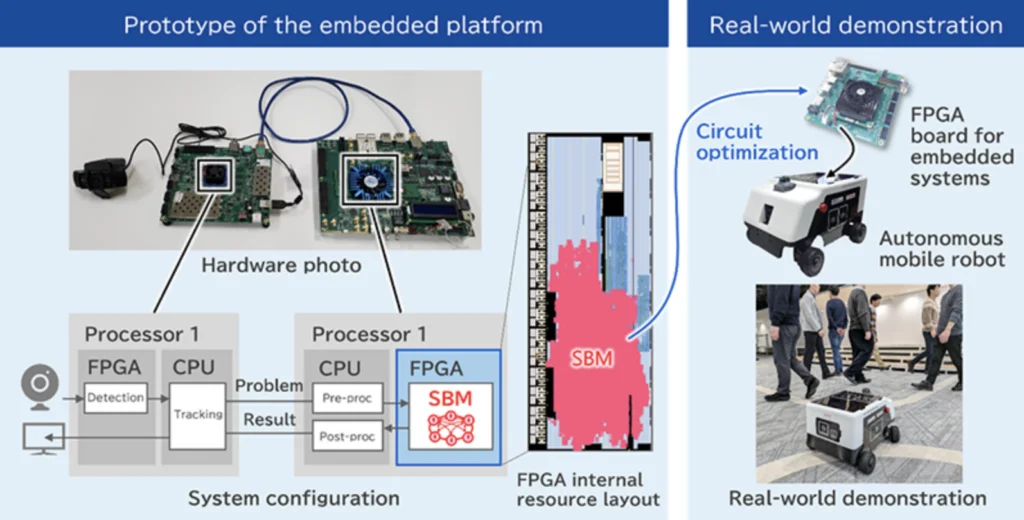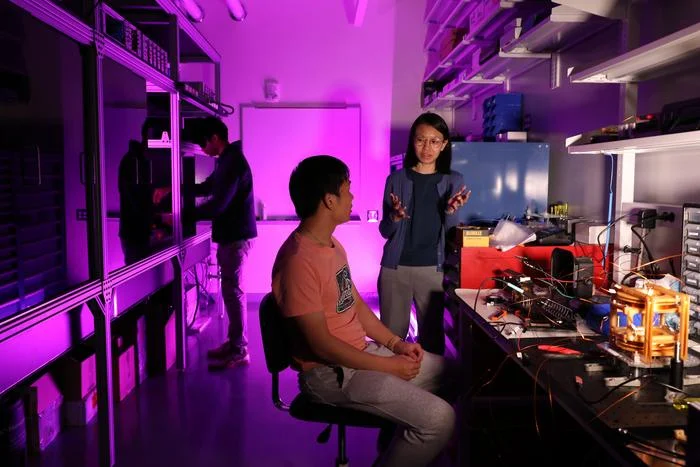Insider Brief
- MicroAlgo Inc. claims to have developed a quantum algorithm implementing FULL adder operations in CPU registers on quantum gate computers, which the company says enhances efficiency and accuracy.
- The algorithm is reportedly based on the Bernstein-Vazirani method and incorporates quantum registers to leverage qubit properties like superposition and entanglement.
- No peer-reviewed research or third-party validation was provided to support MicroAlgo’s claims, leaving the significance of the announcement unverified.
MicroAlgo Inc. has announced the development of a quantum algorithm it claims significantly enhances the efficiency and accuracy of quantum computing operations. According to a company press release, this advance focuses on implementing a FULL adder operation — an essential arithmetic unit — using CPU registers in quantum gate computers.
The company says this achievement could open new pathways for the design and practical application of quantum gate computing systems. However, it’s important to point out that the company did not cite supporting research papers or third-party validations in the announcement.
Quantum Gates Simulate FULL Adder Operations
Quantum gate computers operate by applying quantum gates to qubits, which are the basic units of quantum information. Unlike classical bits that represent data as either “0” or “1,” qubits can exist in a superposition of probabilistic states, theoretically enabling quantum systems to process specific tasks more efficiently than classical computers. According to the press release, MicroAlgo’s innovation leverages quantum gates and the properties of qubits, including superposition and entanglement, to simulate and perform FULL adder operations.

The FULL adder, a basic building block in classical digital circuits, is relatively straightforward to implement in classical computing systems. Its adaptation to quantum computing, however, is more complex due to the unique behaviors of qubits. MicroAlgo claims its implementation enhances computation speed and accuracy, benefiting applications such as large-scale data processing, cryptography, and optimization problems.
Technical Details Based on the Bernstein-Vazirani Algorithm
MicroAlgo’s approach reportedly builds on the Bernstein-Vazirani algorithm, a well-known method in quantum computing. The algorithm determines a hidden bit string using a single quantum query, contrasting with multiple queries required in classical computing. The company says it adapted this algorithm to demonstrate a quantum register — a temporary storage system — capable of efficiently handling qubits.
In classical computing, registers are used to temporarily store and process data. MicroAlgo claims its quantum registers expand on this functionality by relying on the quantum properties of superposition and entanglement. The company states this enables higher parallelism and computational efficiency in addition operations. It further claims that the design offers practical access to quantum registers, a critical step for integrating quantum computers into real-world applications.
No Independent Validation Provided
While the press release outlines the purported benefits of the technology, it does not provide supporting documentation, such as peer-reviewed publications or independent expert evaluations. Claims about the potential performance advantages of MicroAlgo’s quantum algorithm remain unverified.
The absence of such validation is important because independent verification is a standard practice in the quantum computing industry to substantiate claims of significant advances. Without this, the implications of the claimed development it is difficult to fully assess the claims.
Potential Applications and Challenges
In the release, MicroAlgo highlights several areas where its quantum algorithm could have applications. The company reports that its technology may improve computational efficiency in fields like cryptography, optimization and large-scale data processing. It also suggests that the design could inspire new strategies for integrating classical computing concepts, such as FULL adders and registers, into quantum computing architectures.
However, the system would likely face significant challenges before it realizes the practical benefits of quantum computing. As noted in the press release, issues such as qubit stability, error rates and the complexities of managing quantum entanglement and superposition are persistent barriers to broader adoption. The development of more robust quantum algorithms is another critical area requiring attention.














